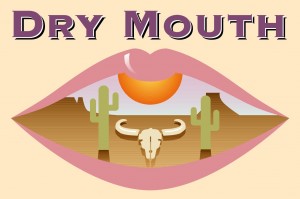Having a dry mouth is a big concern in dentistry. A dry mouth environment tends to produce more bacteria and plaque on the teeth, thus causing more cavities. Medications are commonly the cause of dry mouth. Many medications that are taken by the patient may decrease the salivary flow in the mouth. The dry environment will enable the bacteria in the mouth to grow much faster. When the patient eats or drinks something acidic, it takes several hours for the salivary glands to produces enough saliva to neutralize the acid that can destroy enamel. But if the salivary glands are compromised, the acidic environment formed in the mouth will have even more time to destroy enamel.
Auto-immune diseases can compromise the salivary flow, so if a patient is experiencing dry mouth, they should visit their physician, to discuss changing medications or be checked for any auto-immune diseases that may be causing the dry mouth. A few examples of Auto-Immune diseases are: Sjogren’s syndrome, Diabetes, Lupus Erthematosus, High Blood Pressure, and Thyroid dysfunction.
Cancer patients who receive radiation therapy to the head and neck are at high risk for irreversible xerostomia, but cancer patients who are receiving chemotherapy are at risk for temporary xerostomia, meaning that saliva flow may return fully. Patients facing cancer treatment should always consult with their dentist or hygienist before beginning.
To treat the dry mouth, there are several products that can decrease the spread of the bacteria that causes cavities and help to strengthen the teeth. The Dentist may prescribe toothpaste that has a greater amount of fluoride that the patient can brush with at home. Sometimes we recommend fluoride trays can be worn in the mouth and used at home daily as well. There are oral rinses that can also be helpful in fighting the results of having a dry mouth. At Lilly Family Dentistry, we customize our recommendations according to our patients’ individual needs. Most importantly, visit your dentist and hygienist regularly to avoid having problems associated with dry mouth.
To see a comprehensive list of common medications that cause dry mouth, visit: www.oralcancerfoundation.org/dental/xerostomia.htm

